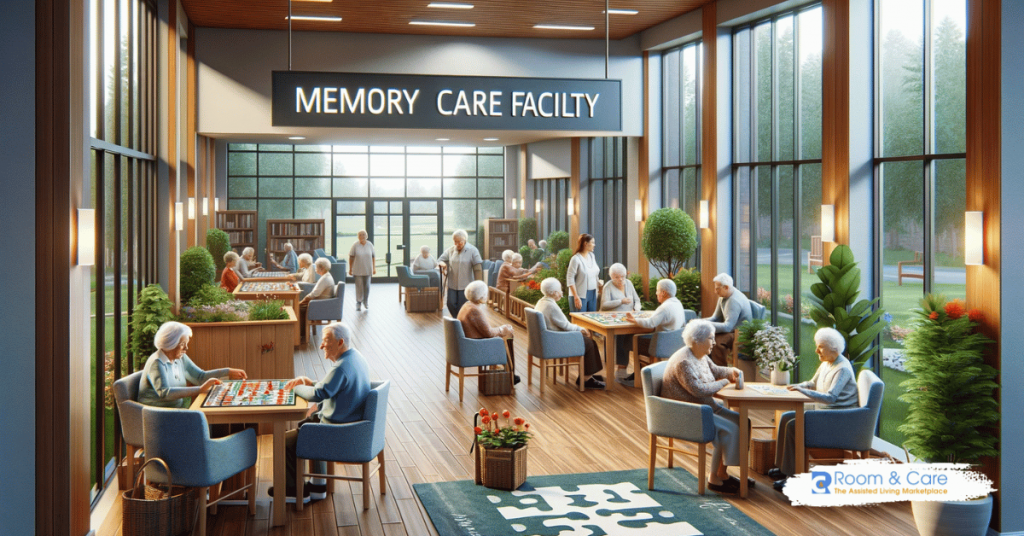Charlotte Memory Care: Safe and Secure Setting for Senior Citizens
Charlotte Memory Care: Safe and Secure Setting for Senior Citizens
Blog Article
Producing a Safe and Helpful Atmosphere: In-Home Memory Care Fundamentals
Establishing a protected and caring setting for individuals requiring at home memory care is extremely important to their health and lifestyle. From guaranteeing safety and security within the home to utilizing effective interaction methods and implementing memory-friendly style aspects, there are vital elements that add to an all natural care strategy. By focusing on producing a helpful community that provides to the distinct demands of those with memory impairments, caregivers can significantly enhance the everyday experiences of their loved ones.

Safe Living Setting
Producing a hazard-free and safe and secure living setting is paramount when providing at home memory care for individuals with cognitive problems. Guaranteeing the security of the private with memory loss is critical to prevent crashes and advertise a feeling of health.
In addition, utilizing technology such as activity sensing units and alarms can signal caregivers if the individual wanders or is in distress. By focusing on security steps and getting rid of prospective hazards, caretakers can provide a supportive and safe and secure environment for individuals with cognitive problems getting in-home memory care.
Reliable Interaction Approaches
Carrying out tailored communication methods is important in promoting significant interactions with people with cognitive impairments in the context of at home memory treatment. Effective interaction plays a critical role in developing a supportive atmosphere that boosts the well-being and lifestyle for people with memory issues. When interacting with a person experiencing cognitive decline, it is essential to use clear and simple language, maintain a calmness and favorable tone, and give visual hints to assist comprehension.
One key technique is to exercise active listening, revealing compassion, perseverance, and respect throughout conversations. Non-verbal signs such as face expressions and body language can also assist communicate understanding and support. Furthermore, utilizing memory treatment by using or going over previous experiences songs and art can touch right into lasting memories, boosting and triggering links engagement.
Furthermore, integrating routine regimens and constant communication patterns can offer a feeling of experience and protection for people with memory problems. By carrying out these communication techniques, caregivers can establish meaningful links and advertise a sense of convenience and rely on the in-home memory care setup.
Memory-Friendly Style
Given the importance of developing a supportive environment for individuals with memory concerns via efficient communication techniques, the incorporation of memory-friendly design elements in the space comes to be necessary in maximizing their day-to-day experiences and general well-being. Memory-friendly design concentrates on improving safety, convenience, and freedom for individuals with cognitive impairments. Straightforward adjustments can make a significant difference, such as making use of contrasting colors to improve exposure and decrease complication, integrating clear signs to help navigating, and lessening clutter to avoid sensory overload.
Including acquainted elements from the individual's past, such as personal photos or favored products, can evoke favorable memories and create a feeling of knowledge. By incorporating these memory-friendly layout components, caretakers can provide a safe and helpful living area that allows individuals with memory problems to preserve their self-reliance and high quality of life. Charlotte Memory Care.
Daily Routine Planning
When creating an everyday routine for people with memory problems, careful preparation is vital to sustain their cognitive feature and overall wellness. Developing an organized schedule can aid minimize anxiety, disorientation, and complication commonly experienced by those with memory disabilities.
It is critical to allow enough time for each and every task, decreasing the requirement to rush and avoiding possible irritation. Easy jobs like meal times, personal treatment, drug administration, and workout ought to be get more incorporated right into the routine. Furthermore, including regular durations of rest and relaxation can stop fatigue and anxiety. Adaptability is key, as some days may call for adjustments based on the individual's mood and power degrees. Routinely examining and adjusting the day-to-day timetable will help ensure its efficiency in advertising a favorable and soothing environment for individuals with memory difficulties.
Assistance System Execution
Establishing a robust network of supportive people plays a pivotal duty in boosting the quality of treatment and wellness for individuals requiring memory support. Household participants, pals, health care experts, and community resources can all add to developing a solid support group. Interaction amongst these individuals is important to guarantee that the needs of the individual with memory challenges are fulfilled successfully.
Relative are typically the primary caretakers and develop the foundation of the support system. They provide everyday treatment, emotional assistance, and companionship. It is essential for household members to look for assistance and reprieve when needed to stop exhaustion and make certain the most effective possible take care of their loved one.
In addition to household assistance, involving health care specialists such as specialists, physicians, and nurses can give specialized care and support. These experts can use important understandings, clinical recommendations, and help in handling the person's condition.

Conclusion
Finally, producing a helpful and secure atmosphere for individuals with memory care demands is crucial for their well-being. By establishing a safe living atmosphere, using effective communication techniques, integrating memory-friendly style aspects, preparing daily routines, and applying a strong support system, caregivers can help boost the lifestyle for those with amnesia. These vital elements work together to create a nurturing and encouraging setting that advertises self-reliance and enhances general lifestyle.
Creating a safe and hazard-free living setting is vital when offering at home memory treatment for individuals with cognitive impairments. By prioritizing safety procedures and removing prospective dangers, caretakers can offer a supportive and safe environment for people with cognitive problems receiving in-home memory care.
Establishing a durable network of helpful individuals plays a pivotal function in enhancing the high quality of treatment and health for individuals calling for memory support - Charlotte Memory Care. Interaction among these people is important to make sure that the needs of the individual with memory difficulties are fulfilled properly

Report this page